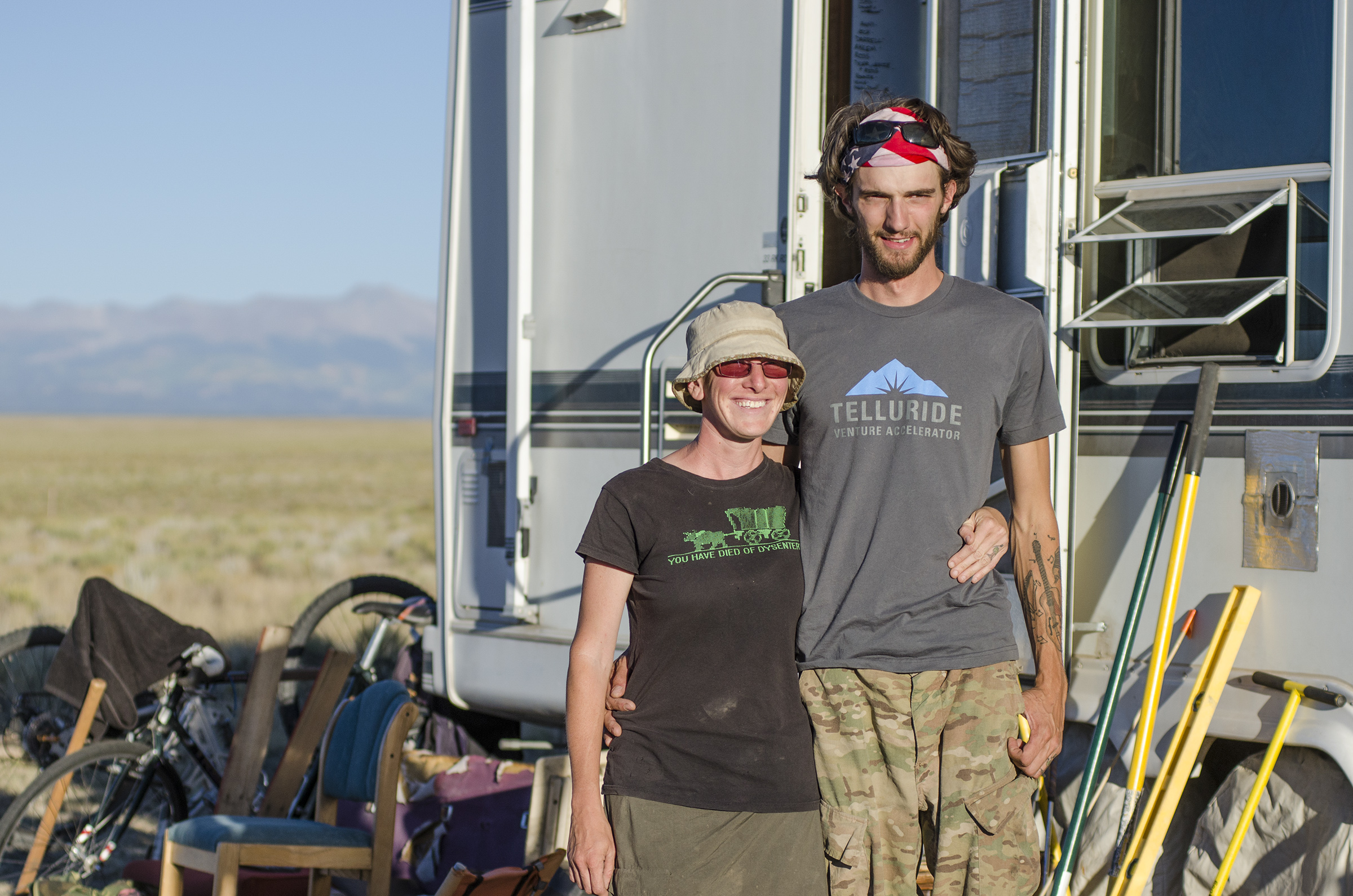
Posted Oct. 1 | Updated Oct. 2
Costilla County has backed off from proposed land-use code changes that off-grid residents say were targeted at them.
A series of tense public meetings in September exposed a conflict between long-time residents and off-grid residents, many of whom are new to the rural area in the southern San Luis Valley. County officials say they now believe the existing code is sufficient to manage sanitation, health concerns and other issues arising from the influx of new residents.
"We all felt like it became a distraction," said Costilla County Chief Administrative Officer Ben Doon, referring to intense disagreements over the proposal.
The proposed changes would have required water, septic and electricity to be installed prior to building permits being issued. Lots smaller than five acres could only have one dwelling unit. Many off-grid residents are building non-conventional homes with things like composting toilets that they say would've been banned.
(Update Oct. 2: County officials now tell CPR News they already have the discretion to require water, septic and electricity -- in addition to a variety of other permits -- before they grant a final building permit. The changes would have made that more clear, they say.)
Chloe Everhart, who recently moved to Costilla County from Montrose with her husband Hyrum Jensen, helped organize her off-grid neighbors to fight the proposed changes. She called the county's move a "win" and hoped for healing between long-time residents and newcomers.
"This can be a very positive development for the community that all of this happened," Everhart said, who added she'll continue to attend relevant public meetings to keep pressure on the county. "Maybe we can start working together to solve some things that have been problems for a very long time."
Two of those problems are illegal dump sites and poverty. Everhart says she's pushing the county to allow residents with high property tax bills to work them off by cleaning up the dump sites. She said the county is trying to figure out if such a plan is legal.
Still though, not all of the issues have been resolved. Obtaining water legally is a constant struggle. And the county in July stopped issuing long-term camping permits because they say off-grid residents were using RVs as a permanent homes. Everhart said she and other off-grid residents are trying to figure out how to sidestep the current limit of 14 days of camping. One idea is for a large group to move from lot to lot every few weeks.
“We’d probably have to move eight or 10 times over the winter," Everhart said. "If they [the county ] force us to live together, all they’re going to do is help us make a stronger community.”
Doon said the county is stepping up its outreach to new residents looking to buy cheap land and live off grid. They've developed a one-page guide with relevant sections of the land-use code.
But will that be enough to de-escalate tensions?
"Time will tell on that one," Doon said.









